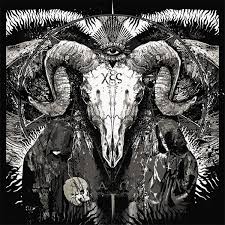
记忆方法
将“occult”与“ocul”结合记忆,联想“ocul”像是“eye”的简称,即“眼”,想到隐藏或秘密的东西通常是用眼去寻找的,因此“occult”可以理解为“隐藏的”或“神秘的”。
以上内容由AI生成, 仅供参考和借鉴
中文词源
occult 神秘的,玄妙的
oc-,在上,表强调,-cul,隐藏,覆盖,词源同hole,cellar,hell.即隐藏的,覆盖的,引申词义神秘的,玄妙的。
英语词源
- occult
-
occult: [16] Something that is occult is etymologically ‘hidden’. The word comes from the past participle of Latin occulere ‘hide’, a compound verb formed from the prefix ob- and an unrecorded *celere, a relative of cēlāre ‘hide’ (which forms the second syllable of English conceal). When English acquired it, it still meant broadly ‘secret, hidden’ (‘Metals are nothing else but the earth’s hid and occult plants’, John Maplet, Green Forest 1567), a sense preserved in the derived astronomical term occultation ‘obscuring of one celestial body by another’ [16].
The modern associations with supernatural mysteries did not begin to emerge until the 17th century.
=> cell, conceal, hall, hell - occult (adj.)
- 1530s, "secret, not divulged," from Middle French occulte and directly from Latin occultus "hidden, concealed, secret," past participle of occulere "cover over, conceal," from ob "over" (see ob-) + a verb related to celare "to hide," from PIE root *kel- (2) "to cover, conceal" (see cell). Meaning "not apprehended by the mind, beyond the range of understanding" is from 1540s. The association with the supernatural sciences (magic, alchemy, astrology, etc.) dates from 1630s.
权威例句
- 1. He's interested in witchcraft and the occult.
- 他对巫术魔法情有独钟。
- 2. Were not all things charged with occult virtues?
- 所有的一切事情,难道不是都有隐藏的品质?
- 3. He and the black - leather fellow looked very occult.
- 他和那个象黑皮革似的家伙显得很神秘.
- 4. Astrology and alchemy are occult sciences.
- 占星学和炼丹术为神秘之学.
- 5. He was a student of the occult.
- 他曾研究神秘学.
